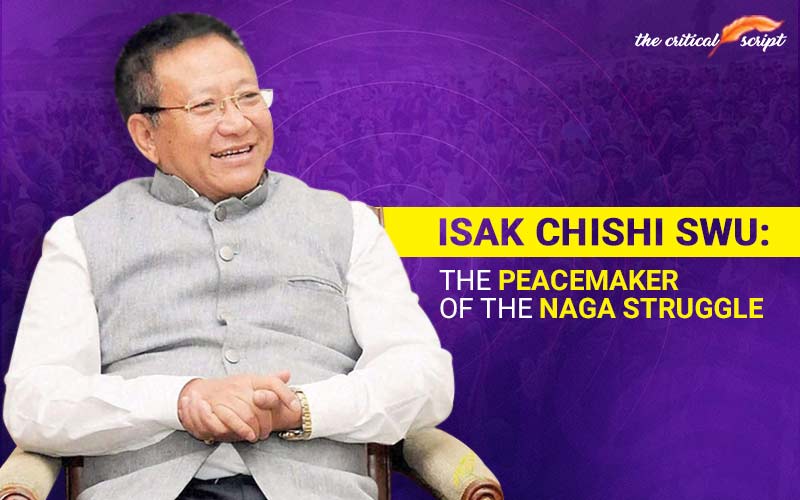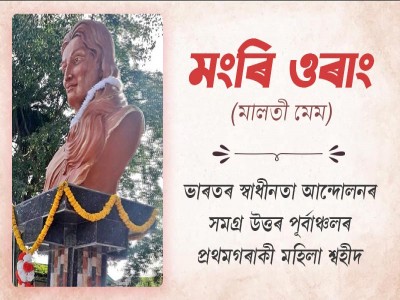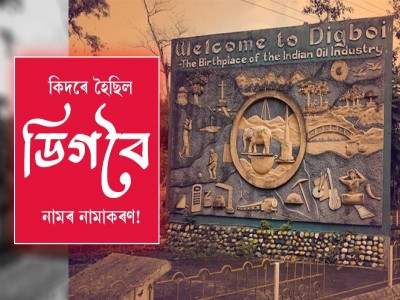
Isak Chishi Swu: The Peacemaker of the Naga Struggle
The history of the Naga movement is incomplete without the mention of Isak Chishi Swu, a man whose life epitomized the long and complex struggle of the Nagas for sovereignty and self-determination. While opinions on his legacy remain divided, there is no denying his immense role in shaping the trajectory of Naga politics—whether through insurgency or diplomacy. His leadership in the National Socialist Council of Nagaland-Isak-Muivah (NSCN-IM) made him a pivotal figure in both resistance and reconciliation, ultimately steering the movement toward peace talks with the Indian government.
From Revolution to Realpolitik
Born in 1929 in
Zunheboto, Nagaland, Swu grew up witnessing the rising nationalist aspirations
among the Naga people. He initially associated with the Naga National Council (NNC), which laid the foundation of the
movement for Naga independence. However, discontent with the Shillong Accord of
1975—seen by many as a surrender of the Naga cause—led to the formation of the NSCN in 1980, along with ThuingalengMuivah and S.S. Khaplang. This group would later
splinter into NSCN-IM and NSCN-K in
1988, marking a crucial shift in the insurgency.
Unlike many insurgent
leaders who remained confined to military tactics, Swu understood the
importance of negotiation. His transformation from a hardcore revolutionary to
a diplomatic peacemaker underscores his pragmatic approach. Under his
leadership, NSCN-IM evolved into not
just an armed movement but also a political force engaging with the Indian
state.
The NSCN-IM Factor and the Push for Greater Nagalim
Swu’s vision of Greater Nagalim—a united homeland for
Nagas across Nagaland, Manipur, Arunachal Pradesh, Assam, and even parts of
Myanmar—remained the cornerstone of his struggle. The idea was ambitious but
controversial, leading to conflicts with neighboring states and ethnic groups.
While it strengthened the Naga nationalist sentiment, it also alienated other
communities and complicated the peace process.
One of his major
achievements was leading NSCN-IM to the historic 1997 ceasefire agreement with the Indian government. This marked a
shift in Naga insurgency, as armed resistance gave way to political dialogue.
While the agreement brought relative peace, the demand for sovereignty was
never fully abandoned, keeping tensions alive.
The Peacemaker’s Legacy: Incomplete but Significant
The 2015 Framework Agreement signed between
NSCN-IM and the Government of India was a testament to Swu’s diplomatic
efforts. Although the details of the agreement remain ambiguous, it signified a
move toward a permanent political solution. Swu’s role in shaping this process
remains a major part of his legacy, even though he did not live to see its
final resolution.
Despite his attempts
at peace, criticisms against Swu cannot be ignored. Many argue that under his
leadership, NSCN-IM engaged in extortion, violence, and factional conflicts
that undermined the Naga cause. Additionally, his insistence on complete
sovereignty made negotiations difficult, prolonging the uncertainty of Naga
politics.
Conclusion: A Leader Beyond Labels
IsakChishiSwu remains
a complex and towering figure in Naga history. For his followers, he was a freedom fighter, a man of vision who
never wavered from his belief in Naga sovereignty. For his critics, he was a
leader who, despite his statesmanship, presided over a militant movement that
disrupted stability in the Northeast.
His life story is one
of conviction and adaptability—qualities that made him both a revolutionary and
a peacemaker. As the Naga peace talks continue, his legacy serves as a reminder
of the long, unfinished struggle for identity, autonomy, and self-determination
in one of India’s most politically sensitive regions.
Disclaimer: The opinions expressed in this article are those of the author's. They do not purport to reflect the opinions or views of The Critical Script or its editor.

Newsletter!!!
Subscribe to our weekly Newsletter and stay tuned.

















Related Comments